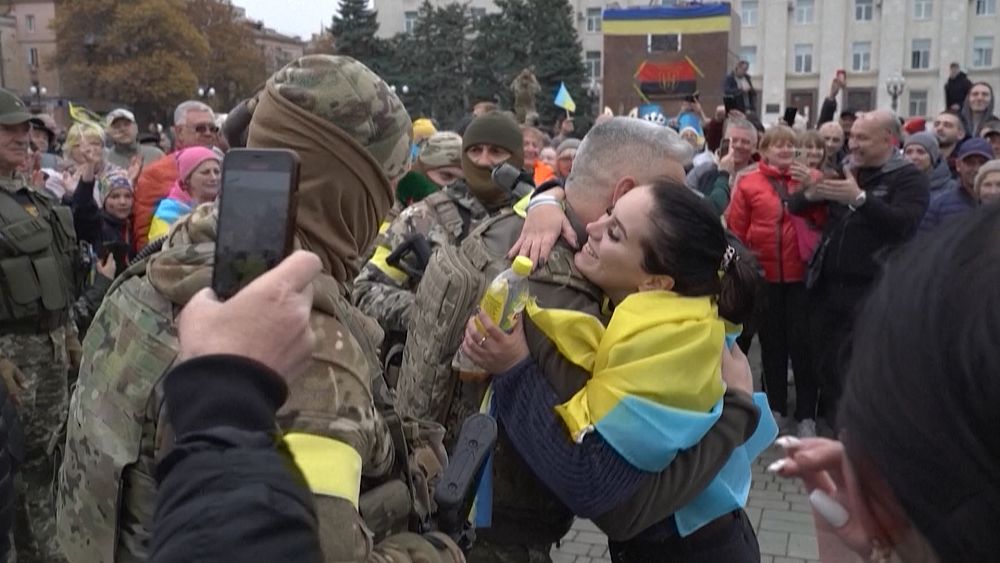Inside liberated Kherson: Joy gives way to anxiety and hunger

Kherson is Ukraine’s hero city: a symbol of the country’s ability to put on a fight. But now it is a shadow of its former self.
It took just a few hours for the joy and relief of the “liberation” to give way to the angst and hunger that now inhabit most of its residents.
The new frontline
Since Russian troops retreated east of the Dnipro River the city has become something of a frontline.
Residents say they are experiencing unprecedented random shelling. When Ukrainian troops were trying to retake the city, they say, they only hit military targets.
Critical infrastructure is constantly under attack and most of the residents have no electricity, heating or running water.
Olena Averina was born and raised in Kherson and decided to stay through Russia’s occupation with her daughter Nastya.
“I stayed because my mother and my father are ill,” she says. “So I had no other option. Also because I had no money to leave. And we were born here. We didn’t want to leave everything that way. Who will help if not us? In our building, only me and Nastya are left. The others are elderly: pensioners, disabled. How can we leave them?”
Lack of medical resources
The elderly and the sick have been left in a particularly difficult situation. Many no longer find the help they need in Kherson.
Vodnikova hospital used to be one of Kherson’s main medical facilities. Most of the staff have gone and patients have been offered medical evacuation for security reasons.
But it’s impossible for many.
“I am alone,” says a patient with back trauma. “I don’t know how to live outside of my hometown.”
Doctor Vitalina Chebotareva shows us around her department. There is no electricity for the monitors in the intensive therapy unit.
“We have a curfew, and shelling, so people are not calling the ambulances any night,” she says. “Plus there are not enough ambulances left in the city. People don’t get medical help on time, and they arrive here in a bad condition.
“The most complicated period was the first days and months of the occupation. No one knew what would happen to us, how to work and how long it would last. Then we got used to the situation. The last month, without light, water or heating was also very complicated. Morally and physically.”
Homes destroyed
In the destroyed village of Posad-Pokrovsk, Tatiana returns to the wreck of what was once her home.
“I can’t come here without pain, a pain in my soul,” she says. “When the war started, we all came here. We lived in this room. Everything was exploding around us we were lying on the floor. We thought it would stop. It was unbelievable. We didn’t believe that war could happen.”
The family finally left.
“I don’t feel anger, only loathing,” says Oleksandr. “Loathing that will last my whole life. A loathing of Russia that will last my whole life. My kids have no house now.
“I don’t have the house that took me 40 years to build. And now I have nothing. What can I feel? Just anger. I wish Russia loses everything too – the whole of Russia.
“I think our generation won’t have peace with Russia. They killed so many that peace is impossible right now for our generation. Maybe there will be peace in the coming generations…”
But his son-in-law Ilya says: “Not in our generation either. I doubt it. I really doubt it.”
Inside liberated Kherson: Joy gives way to anxiety and hunger
Source: Reporters View PH
No comments